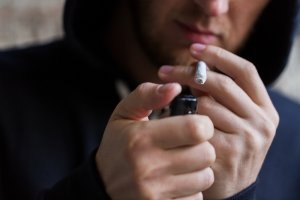Is Using Weed a Relapse?
Being sober or clean and sober means not using drugs and alcohol, ever. Twelve-step programs, such as Narcotics Anonymous, even consider “clean and sober” to mean staying away from any substances that change how your mind or emotions work. However, there is greater efforts in the United States to legalize medical and recreational marijuana (known colloquially as weed), many in recovery are beginning to wonder; Is using weed a relapse?
Is Using Weed a Relapse?
Many people who seek treatment do so for substances other than marijuana (commonly called weed). Alcohol, opioids, cocaine, and crystal meth tend to cause major health, financial, and legal problems. However, weed is often viewed differently. Due to weed being legalized for medical and recreational use in some areas, it may not be seen as harmful by many.
That said, substance use treatment providers and self-help groups do still think that using weed is a form of relapse.
Why is Using Cannabis a Relapse?
Cannabis is a drug that alters your mood and changes how your brain functions. The legal status of a substance doesn’t determine whether it affects your sobriety. Alcohol is legal and also counts as a relapse.
Many people use weed along with other substances, making it difficult to only use one without the other. This makes it more likely to return to using other substances once relapsing on weed. It can also lower inhibitions, making it seem more appealing to use alcohol or other drugs. Studies have shown that people who use weed are 5 times more likely to relapse on other substances.1
What About Cannabidiol (CBD)?
Cannabidiol (CBD) is a component that is found in weed. CBD isn’t psychoactive and doesn’t have any potential to be abused or cause addiction.2 This means that it won’t affect your sobriety since it doesn’t have the same mind-altering effects that weed or other drugs do. In fact, studies conducted in animals have suggested that CBD can actually reduce the risk of relapse on alcohol and other drugs.3 These animal studies also showed that the reduced risk of relapse can last for months after stopping use of CBD.3 CBD can also reduce the cravings for opioids that people tend to experience during recovery, which can lead to relapse.4 CBD use in recovery isn’t considered a relapse, but if you are in treatment, you may want to discuss this with your counselor.
Treatment Options
Staying sober can be difficult, especially when you’re facing temptations and stress. Treatment programs can offer medications to help you manage cravings. Treatment programs may also provide counseling that teaches you how to cope with stressful  situations and prevent relapse. Group therapy sessions and 12-step groups such as Alcoholics Anonymous or Narcotics Anonymous can offer sober support from people who are going through recovery with you. Professional treatment programs such as the ones offered through American Addiction Centers can offer you effective treatment that can help you stay in recovery and prevent relapse, no matter what your needs are or where you live.
situations and prevent relapse. Group therapy sessions and 12-step groups such as Alcoholics Anonymous or Narcotics Anonymous can offer sober support from people who are going through recovery with you. Professional treatment programs such as the ones offered through American Addiction Centers can offer you effective treatment that can help you stay in recovery and prevent relapse, no matter what your needs are or where you live.
Sources
- Columbia University Irving Medical Center. (2005). Latest research shows marijuana use may be a gateway to relapse.
- Harvard Health Publishing. (2018). Cannabidiol (CBD) — what we know and what we don’t.
- National Institute on Drug Abuse. (2018). Non-psychoactive cannabinoid may enable drug addiction recovery.
- Epstein, D.H. (2019). Cannabidiol: Not a cure-all, but a candidate for coping with cue-induced craving. American Journal of Psychiatry, 176(11): 888-891.
